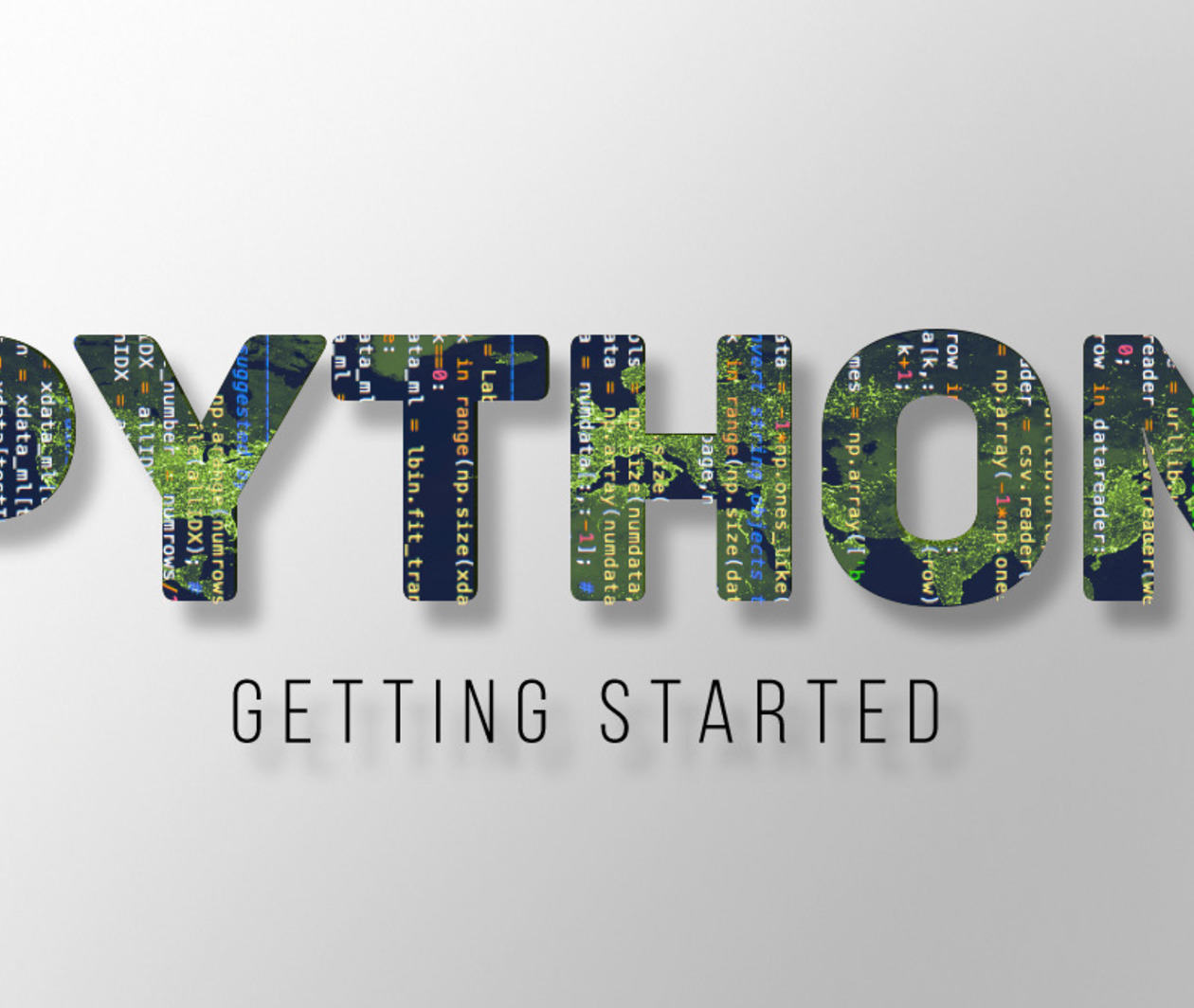Master the basics of Python programming, and learn how to use programming tools and variables with the University of Michigan.

Duration
6 weeksWeekly study
4 hours
Programming for Everybody (Getting Started with Python)
Other courses you might like
This course isn't running right now. We can email you when it starts again, or check out these other courses you might like.
Browse more in IT & Computer Science and Science, Engineering & Maths
Learn Python from scratch and prepare yourself for a future in programming
On this programming course, you’ll go from a complete beginner with no prior programming experience to having a solid understanding of the Python programming language.
You’ll begin by completing basic exercises that focus on the core concepts of programming. As you progress, you’ll learn how to use variables to store, retrieve and calculate information. You’ll optionally install Python, then write your first program, and get to grips with utilize core programming tools like functions and loops.
Upon completion of this course, you’ll have the computer programming skills to further your learning alone.
Syllabus
Week 1
Welcome to The Class
Welcome
Welcome to Programming for Everybody (Getting Started with Python)!
Materials
This activity will introduce you course-wide material so you can come back and reference it as you need to throughout the class.
Writing Python Programs
Getting ready for python programming.
Bonus Materials
Bonus videos with Dr. Chuck.
Week 2
Chapter One: Why We Program?
Introduction: Chapter 1
Welcome to Chapter 1.
Lecture Materials
Getting started with the basics.
Review: Chapter 1
Take the test and evaluate your learning for Chapter 1.
Assignment: Chapter 1
Our first program: Hello world!
Autograder: Check Your Status
Check your status on Autograder activities throughout the duration of the course.
Python Playground
Use the "Python Playground" to experiment with writing your own Python applications using only your browser.
Bonus: Chapter 1
Our bonus interviews for this week.
Week 3
Chapter Two: Variables and Expressions
Introduction: Chapter 2
Welcome to Chapter 2.
Lecture Materials
Expressions
Review: Chapter 2
Take the test and evaluate your learning for Chapter 2.
Assignment: Chapter 2
Apply what you have learned.
Bonus: Chapter 2
Our bonus interview for this week.
Week 4
Chapter Three: Conditional Code
Introduction: Chapter 3
Welcome to Chapter 3.
Lecture Materials
Conditional Statements
Review: Chapter 3
Take the test and evaluate your learning for Chapter 3.
Assignment: Chapter 3
Apply what you have learned.
Bonus: Chapter 3
Our bonus interview for this week.
Week 5
Chapter Four: Functions
Introduction: Chapter 4
Welcome to Chapter 4.
Lecture Materials
Using and building functions.
Review: Chapter 4
Take the test and evaluate your learning for Chapter 4.
Assignment: Chapter 4
Apply what you have learned.
Bonus: Chapter 4
Our bonus interview for this week.
Week 6
Chapter Five: Loops and Iteration
Introduction: Chapter 5
Welcome to Chapter 5.
Lecture Materials
Learning about loops and iteration.
Review: Chapter 5
Take the test and evaluate your learning for Chapter 5.
Assignment: Chapter 5
Apply what you have learned.
Bonus: Chapter 5
Our bonus for this week.
Wrap Up
Explore what is next with Dr. Chuck
Learning on this course
On every step of the course you can meet other learners, share your ideas and join in with active discussions in the comments.
What will you achieve?
By the end of the course, you‘ll be able to...
- Describe the basics of the Python programming language
- Use variables to store, retrieve and calculate information
- Install Python and write your first program
- Utilize core programming tools such as functions and loops
Who is the course for?
This course is designed for anyone who wants to learn the basics of programming computers using Python.
It’s suitable for those who are considering a future career in programming or software development but have limited or no computer science experience, as well as those interested in exploring different programming languages at a beginner level.
What software or tools do you need?
Please note that JavaScript is required for full access to course content.
Who will you learn with?
Charles is a Clinical Professor and teaches in the School of Information at the University of Michigan. He is the Chair of the Sakai Project Management Committee (PMC).
Who developed the course?
Established
1817Location
Ann Arbor, Michigan, USAWorld ranking
Top 30Source: Times Higher Education World University Rankings 2020
Learning on FutureLearn
Your learning, your rules
- Courses are split into weeks, activities, and steps to help you keep track of your learning
- Learn through a mix of bite-sized videos, long- and short-form articles, audio, and practical activities
- Stay motivated by using the Progress page to keep track of your step completion and assessment scores
Join a global classroom
- Experience the power of social learning, and get inspired by an international network of learners
- Share ideas with your peers and course educators on every step of the course
- Join the conversation by reading, @ing, liking, bookmarking, and replying to comments from others
Map your progress
- As you work through the course, use notifications and the Progress page to guide your learning
- Whenever you’re ready, mark each step as complete, you’re in control
- Complete 90% of course steps and all of the assessments to earn your certificate
Want to know more about learning on FutureLearn? Using FutureLearn
Learner reviews
Learner reviews cannot be loaded due to your cookie settings. Please and refresh the page to view this content.
Get a taste of this course
Find out what this course is like by previewing some of the course steps before you join:
Do you know someone who'd love this course? Tell them about it...
You can use the hashtag #Python to talk about this course on social media.
